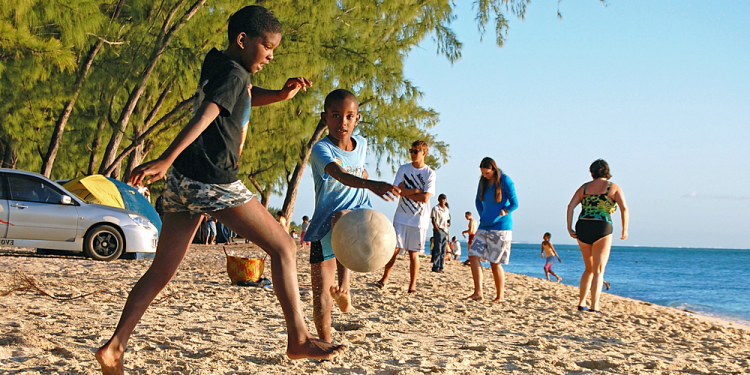
When you hear about Mauritius, the first things that come to mind are inevitably exotic beaches and gorgeous landscapes. While those are definitely some of the main attractions, there are much more to learn about Mauritius, especially if you're planning to relocate there as an expat.
The locals

When moving to a new country, most people are curious, if not somewhat apprehensive, about the locals. Fear not, for Mauritians are generally known for their friendliness and hospitality. Willingness to help is one of the qualities you will find in Mauritians. Have you lost you way with no GPS to help? Ask a local and they will gladly give you directions.
Mauritius is a beautiful blend of different ethnicities, cultures, and religions, and traditions are an important part of the daily life. The multicultural aspect of the country means that the locals are very aware of the festivals and holidays of other cultures, leading to better understanding and tolerance. However, Mauritius still has some ways to go in terms of gender equality, even though the country boasts of having a woman as President and as a Speaker of the National Assembly.
The atmosphere

Composed mostly of descendants of slaves and indentured laborers, the island prides itself on its diversity of religions and cultures. In Mauritius, everybody respects the faith of their counterparts and consequently the island is known to be one of the most peaceful countries in the world. There is one common language spoken by all, creole, although French is spoken widely and English is heavily taught in school.
Mauritius is a fairly safe country to live in, although general rules regarding safety still apply, such as avoid walking alone on a deserted street at night since petty theft is still common. The capital city of Port-Louis and most places are extremely quiet at night, but clubs, bars, and restaurants abound in the larger tourist hubs such as Grand Baie and Flic-en-Flac.
Schooling

The best thing about schooling in Mauritius is that education is free, and compulsory up to the age of 16. Recently the government undertook the responsibility of paying the fees for every student competing for the first time for the School Certificate and Higher School Certificate, which are the last four years of school at the secondary level, as long as the students meet certain requirements such as low level of absenteeism.
Furthermore the Mauritian Educational System recently went through changes wherein there will be more emphasis placed on extra-curricular activities instead of just academics to help the young ones find their vocational passion and interests earlier on. The Examination System has also been altered with the best interest of the students in mind so as to help avoid the stress that is caused by the extremely competitive schooling system.
Climate and health

Mauritius has only two seasons, namely summer from November to April, and a short winter from May to October. The temperatures during the seasons vary based on which parts of the island you're staying in. Along the eastern coast for instance, it tends to be windier, whereas the middle part of the island tends to experience more rain and a cooler climate. During summer the temperatures average to about 30 degrees Celsius, and can go down to 10-15 degree Celsius during the winter months.
Mauritius is one of the healthiest African nations in terms of transmissible diseases, and there is little to no risk of malaria or yellow fever. However, mosquitoes are in abundance especially after heavy rainfall. During seasonal changes there can be small outbreaks of the cold or flu.
The environment

Mauritius has a very low level of air pollution, and one of the cleanest air in the world. Cities are mostly victims of traffic congestion, which is a big problem in Mauritius. Insensible garbage disposal can be a problem in many parts of the island, which led to the government coming up with campaigns to mobilize the residents to help clean up the island and educate the people. Slowly but surely, the country is on its way to less soiling and more cleanliness.
A heavier effort is also being put into place regarding environmental sustainability. Plastic bags are banned, and people are encouraged to recycle grocery bags by bringing their own totes or using biodegradable plastic bags. The general public is slowly starting to become more aware of the dangers of coral bleaching, irresponsible water activities, and the effects of plastics and non-biodegradable products.



















